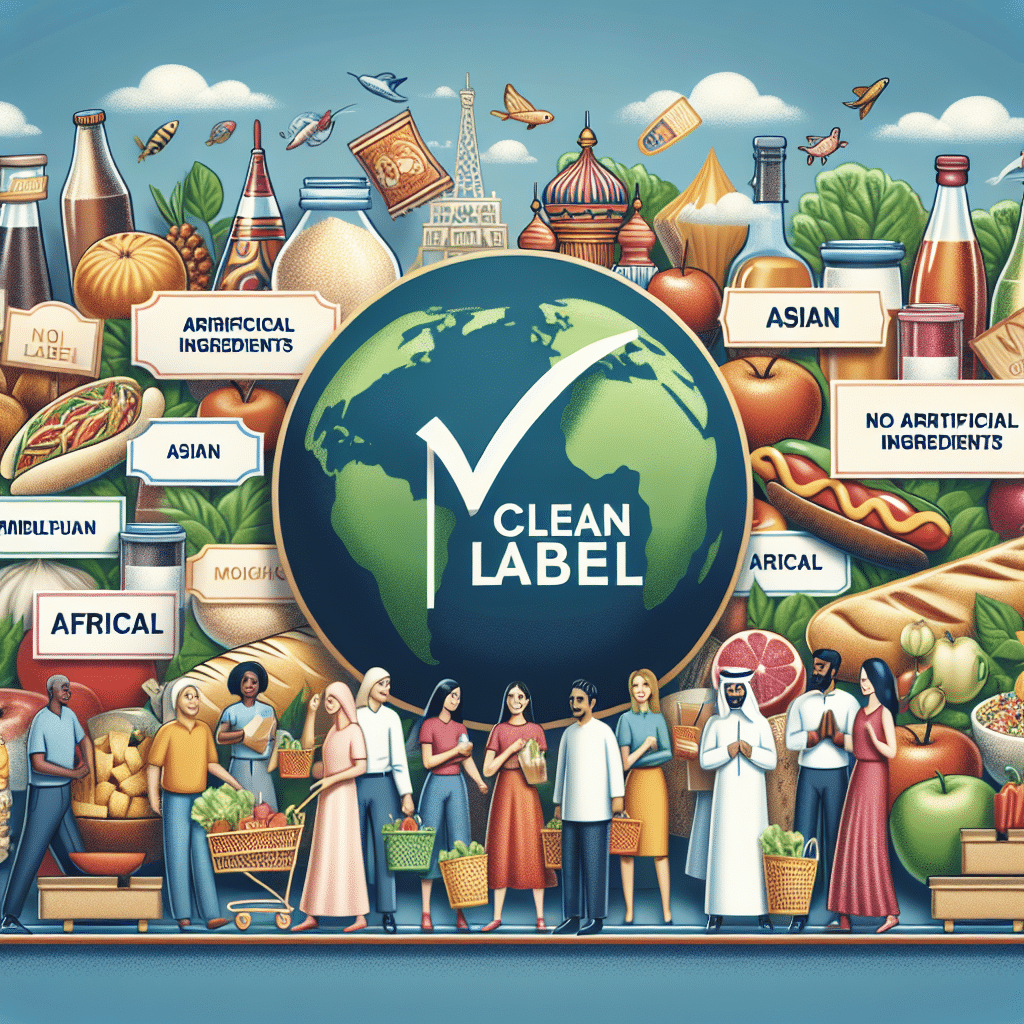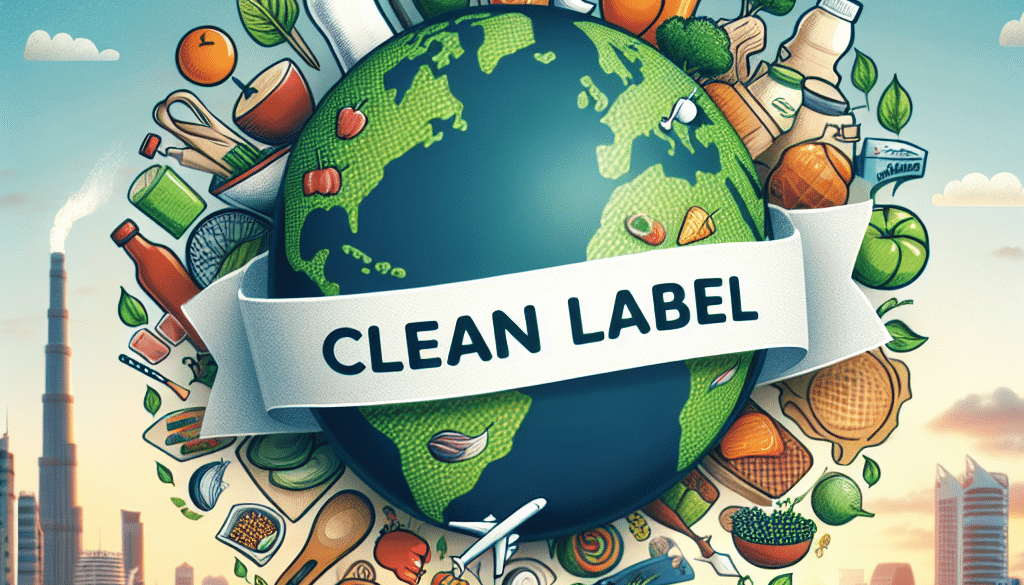In APMEA, Clean Label Goes Beyond Health
-
Table of Contents
- Clean Label in APMEA: More Than Just Health Benefits
- Understanding Clean Label
- Health Concerns: The Initial Catalyst
- Transparency and Trust
- Ethical Production and Sustainability
- Case Studies and Examples
- Statistics and Market Growth
- Challenges and Considerations
- Conclusion: The Future of Clean Label in APMEA
- ETprotein: Meeting the Demand for Clean Label Protein Products
Clean Label in APMEA: More Than Just Health Benefits

The concept of “clean label” has been gaining traction across the globe, and the Asia Pacific, Middle East, and Africa (APMEA) region is no exception. In these diverse markets, clean label is evolving to encompass more than just health concerns; it’s becoming a symbol of quality, transparency, and ethical production. This article delves into how clean label initiatives in APMEA are reshaping consumer expectations and influencing the food industry.
Understanding Clean Label
Clean label is a consumer-driven movement that calls for food products to contain natural, familiar, and simple ingredients that are easy to recognize, understand, and pronounce. The absence of artificial additives, preservatives, and chemicals is a hallmark of clean label products. However, in APMEA, the clean label trend extends beyond ingredient lists to include sustainable sourcing, ethical practices, and environmental considerations.
Health Concerns: The Initial Catalyst
The clean label movement initially emerged from health-conscious consumers seeking products that align with their wellness goals. In APMEA, rising rates of obesity, diabetes, and heart disease have prompted individuals to pay closer attention to what they consume. This health-driven demand has led to an increase in clean label products in the market.
- Consumers are looking for products with reduced sugar, low sodium, and no trans fats.
- There is a growing preference for organic and non-GMO products.
- Functional foods with added health benefits, such as probiotics and plant-based proteins, are on the rise.
Transparency and Trust
In the APMEA region, clean label is also about transparency and building trust between consumers and brands. Shoppers are more informed and skeptical than ever before, and they demand to know where their food comes from and how it’s made.
- Brands are responding by providing more information on packaging and through digital channels.
- QR codes that trace the product’s journey from farm to shelf are becoming more common.
- Companies are investing in blockchain technology to enhance supply chain transparency.
Ethical Production and Sustainability
Consumers in APMEA are increasingly concerned with the ethical implications of their purchases. Clean label products are now expected to be not only healthy but also produced in a socially and environmentally responsible manner.
- Fair trade certifications and ethical sourcing claims are becoming more prevalent.
- There is a growing demand for plant-based and cruelty-free products.
- Sustainable packaging solutions are being developed to reduce environmental impact.
Case Studies and Examples
Several brands in the APMEA region have successfully integrated clean label principles into their products and operations. For instance:
- A leading dairy company in Japan has launched a line of clean label yogurts with no artificial sweeteners or preservatives.
- An Australian snack brand uses only locally sourced, non-GMO ingredients and has committed to carbon-neutral production.
- A Middle Eastern food manufacturer has gained popularity for its transparent supply chain and commitment to no artificial additives.
Statistics and Market Growth
The clean label trend is not just a passing fad; it’s a growing market segment. According to a report by MarketsandMarkets, the global clean label ingredients market is projected to reach USD 64.1 billion by 2026, growing at a CAGR of 6.8% from 2021 to 2026. The APMEA region, with its large and increasingly health-conscious population, is expected to contribute significantly to this growth.
Challenges and Considerations
While the clean label movement presents opportunities, it also poses challenges for food manufacturers in APMEA:
- Reformulating products to meet clean label standards can be costly and technically challenging.
- Ensuring a consistent supply of natural and organic ingredients can be difficult due to variable harvests and sourcing complexities.
- There is a need for ongoing consumer education to explain the benefits and justify the often higher price points of clean label products.
Conclusion: The Future of Clean Label in APMEA
The clean label movement in APMEA is reshaping the food industry, with health concerns being just the tip of the iceberg. As consumers continue to demand transparency, ethical production, and sustainability, brands must adapt to stay relevant. The future of clean label in APMEA looks promising, with ample opportunities for growth and innovation.
ETprotein: Meeting the Demand for Clean Label Protein Products
ETprotein is well-positioned to support the clean label movement in APMEA with its range of high-quality protein products. Their offerings, such as organic rice protein, clear pea protein, and various seed proteins, cater to the health-conscious consumer looking for plant-based, non-GMO, and allergen-free options. ETprotein’s commitment to purity, with L-(+)-Ergothioneine purity over 98%, ensures that their products meet the stringent standards of clean label enthusiasts.
For businesses seeking to incorporate clean label ingredients into their products, ETprotein provides a reliable source of organic bulk vegan proteins and L-(+)-Ergothioneine. Their expertise in exporting and delivering tailor-made protein solutions makes them a valuable partner for companies aiming to thrive in the clean label space.
About ETprotein:
ETprotein, a reputable protein and L-(+)-Ergothioneine (EGT) Chinese factory manufacturer and supplier, is renowned for producing, stocking, exporting, and delivering the highest quality organic bulk vegan proteins and L-(+)-Ergothioneine. They include Organic rice protein, clear rice protein, pea protein, clear pea protein, watermelon seed protein, pumpkin seed protein, sunflower seed protein, mung bean protein, peanut protein, and L-(+)-Ergothioneine EGT Pharmaceutical grade, L-(+)-Ergothioneine EGT food grade, L-(+)-Ergothioneine EGT cosmetic grade, L-(+)-Ergothioneine EGT reference grade and L-(+)-Ergothioneine EGT standard. Their offerings, characterized by a neutral taste, non-GMO, allergen-free attributes, with L-(+)-Ergothioneine purity over 98%, 99%, cater to a diverse range of industries. They serve nutraceutical, pharmaceutical, cosmeceutical, veterinary, as well as food and beverage finished product distributors, traders, and manufacturers across Europe, USA, Canada, Australia, Thailand, Japan, Korea, Brazil, and Chile, among others.
ETprotein specialization includes exporting and delivering tailor-made protein powder and finished nutritional supplements. Their extensive product range covers sectors like Food and Beverage, Sports Nutrition, Weight Management, Dietary Supplements, Health and Wellness Products, and Infant Formula, ensuring comprehensive solutions to meet all your protein needs.
As a trusted company by leading global food and beverage brands and Fortune 500 companies, ETprotein reinforces China’s reputation in the global arena. For more information or to sample their products, please contact them and email sales(at)ETprotein.com today.












